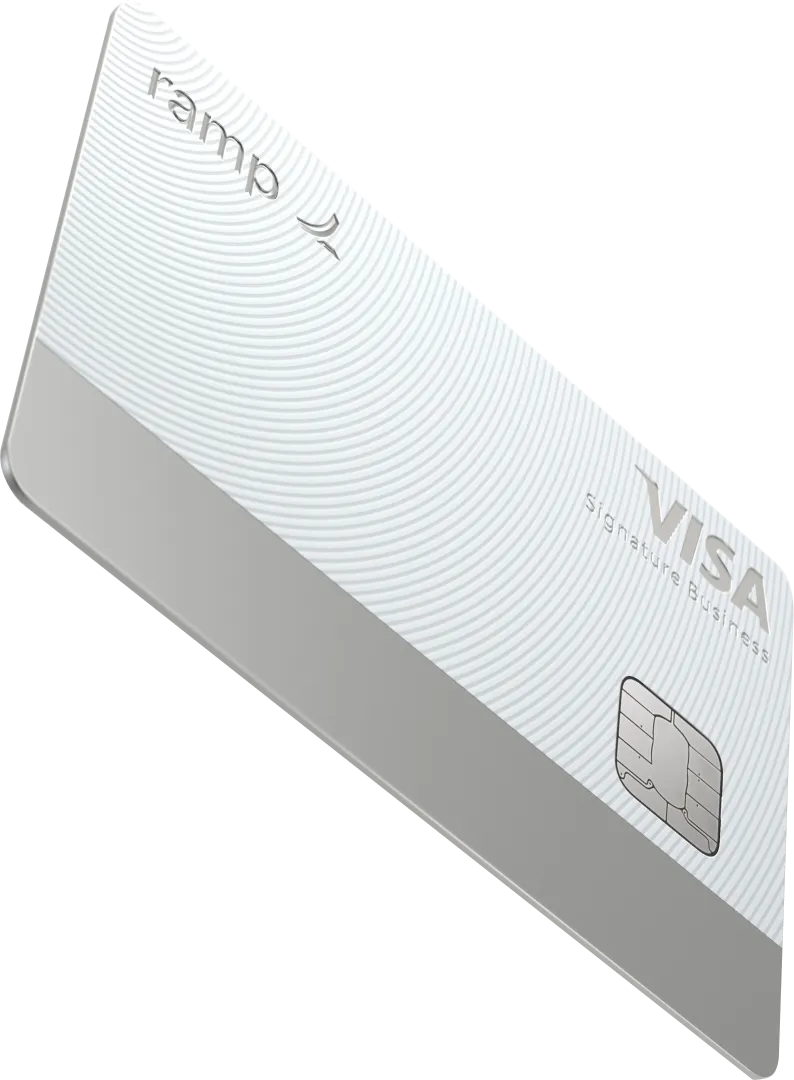What is a business credit card?



straight to your inbox
How does a business credit card work?
Business credit cards work just like a personal credit card. You can charge purchases on the card and receive a statement at the end of the month that includes your balance and minimum payment amount.
When you pay the balance off in full, you won’t pay any interest. If you opt to carry a balance, you’ll accrue interest. Typically, if your business has a good credit history, you have a higher chance of landing a favorable interest rate.
The best business credit cards come with rewards, like cashback or travel perks. They usually come with higher credit limits than personal cards and may include expense management features such as custom spending limits, automated expense tracking, and reporting to streamline accounting processes and improve cash flow management.
Benefits of business credit cards
The major benefit of business credit cards is that they allow you to separate business and personal expenses while earning rewards.
Here’s a look at all of the advantages of opening a business credit card:
Disadvantages of business credit cards
While opening a business credit card is usually a good idea, there are some drawbacks to keep in mind:
What is the difference between a business credit card and a personal credit card?
Here are some key differences between business and personal credit cards:
- Credit limits: Business credit cards often have higher credit limits compared to personal cards, accommodating the larger expenses typically incurred by businesses.
- Rewards: Business cards offer rewards tailored to common business expenses, like office supplies or travel, whereas personal cards tend to have rewards more suited to individual consumer spending patterns.
- Expense management tools: Business credit cards often come with advanced tools for tracking and categorizing expenses, which can be extremely helpful for budgeting, tax preparation, and financial reporting.
- Building credit: While both types of cards can help build credit, business cards affect your business credit score, and personal cards impact your personal credit score.
- Interest rates and fees: The interest rates and fees can vary between the two, often reflecting the different risk profiles of businesses and individuals.
While personal credit cards can be used for business expenses, and vice-versa, it's generally not a good idea to do so. Mixing personal and business expenses can complicate accounting, make it harder to track business expenses accurately, and potentially violate your card's terms and conditions.
Should I get a business credit card?
Anyone who owns a business should consider getting a business credit card. Aside from letting you separate your business and personal expenses, building a business credit history will prove useful down the line should you seek out business financing.
Here are a few signs that you should get a business credit card:
- Juggling personal and business expenses on one card is getting confusing
- Your business is registered as a separate legal entity
- Your personal credit card limit isn’t high enough to cover your business needs
- You have employee spending and expense reimbursements
- You might need a business loan in the future
If you don’t have a strong personal credit score but still need a business credit card, consider a corporate card that doesn’t require a credit check or personal guarantee.
How to apply for a business credit card
To apply for a business credit card, you'll have to make sure your business meets the issuer's requirements, which usually include a good personal credit score and a Social Security Number.
The application process typically involves providing your business details and financial information. For new businesses or those with limited credit history, a personal guarantee or a secured business credit card might be necessary. With a secured card, you put up a security deposit that becomes your line of credit.
Do you need income for a business credit card?
Business credit card eligibility depends more on your personal credit and financial background, rather than your business's income. While you won’t need to prove any business financials, you’ll likely have to put up a personal guarantee. That means that you as the cardholder, not your business, will be responsible for any credit card debt.
Can I use my business credit card for personal use?
It isn’t illegal to use a business credit card for personal use, but it probably goes against the terms and conditions outlined in your cardholder agreement. If you regularly put personal expenses on your business credit card, that could raise a red flag for your credit card issuer, potentially leading to the cancellation of your card.
Consider Ramp's corporate card for your business
Ramp is unlike the traditional business credit cards. Our charge card comes with no fees and no interest.
When you sign up for Ramp, you also get access to intuitive software that provides a host of useful tools.
Here are just a few of the features you can expect with a Ramp corporate card:
- Set individual spending limits and restrictions on free employee cards
- Access a higher credit limit with sales-based underwriting
- Take advantage of automatic receipt tracking and purchase categorization
- Integrate your Ramp account with your favorite bookkeeping platforms to save time closing your books
FAQs
Business credit cards and personal cards are similar. They both represent revolving lines of credit and give you the ability to make point-of-sale purchases anywhere they’re accepted. They also both deduct the money you spend from your available credit and add it to your balance when you use them. The core difference between the two is the audience they’re designed for.
Business credit cards are designed for businesses that need an easily accessible revolving line of credit to cover day-to-day business expenses. Personal credit cards help consumers with day-to-day purchases.
In most cases, you’ll need a business that’s been around for at least three years and that has a positive credit history. Aside from credit and business age requirements, you’ll need statements that show your revenues and earnings and that your company can afford to take on debt.
If your business doesn’t have any revenue, you may be required to make a personal guarantee that’s tied to your Social Security number.
Freelancers, sole proprietors, and new businesses may all qualify for a small business credit card.
Consider what primary feature would benefit your business the most:
- If you need to build business credit, a prepaid business credit card is your best option.
- If you’re a startup, look for business cards designed specifically for startups.
- If you travel for business often, consider an airline card, but check into the rewards program first.
Also consider the features that will help you manage your expenses and grow your business. Ramp offers unlimited employee cards, automatic receipt tracking, automatic expense categorization, and other features to help your business thrive.




.webp)


.webp)

.jpeg)









.png)




